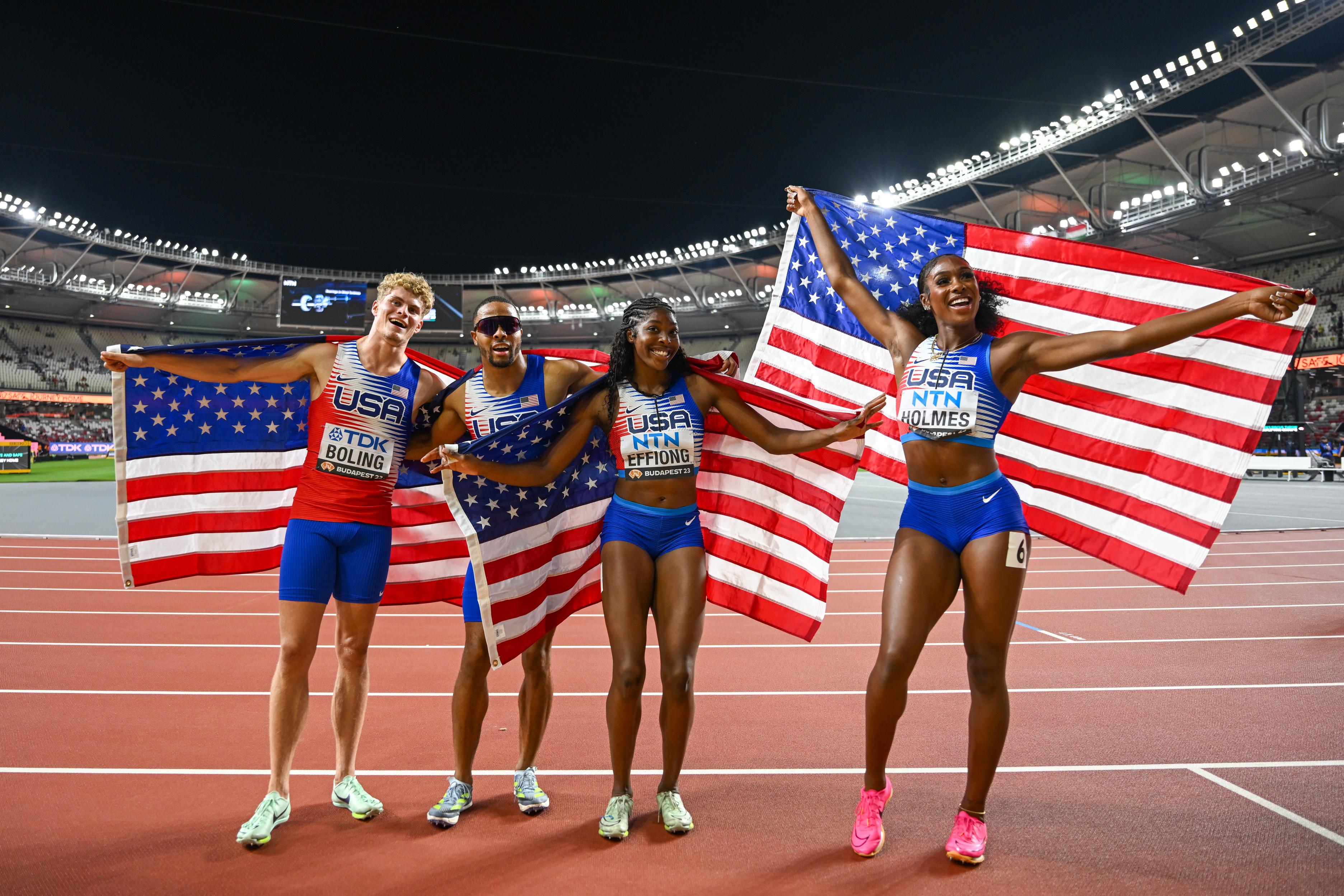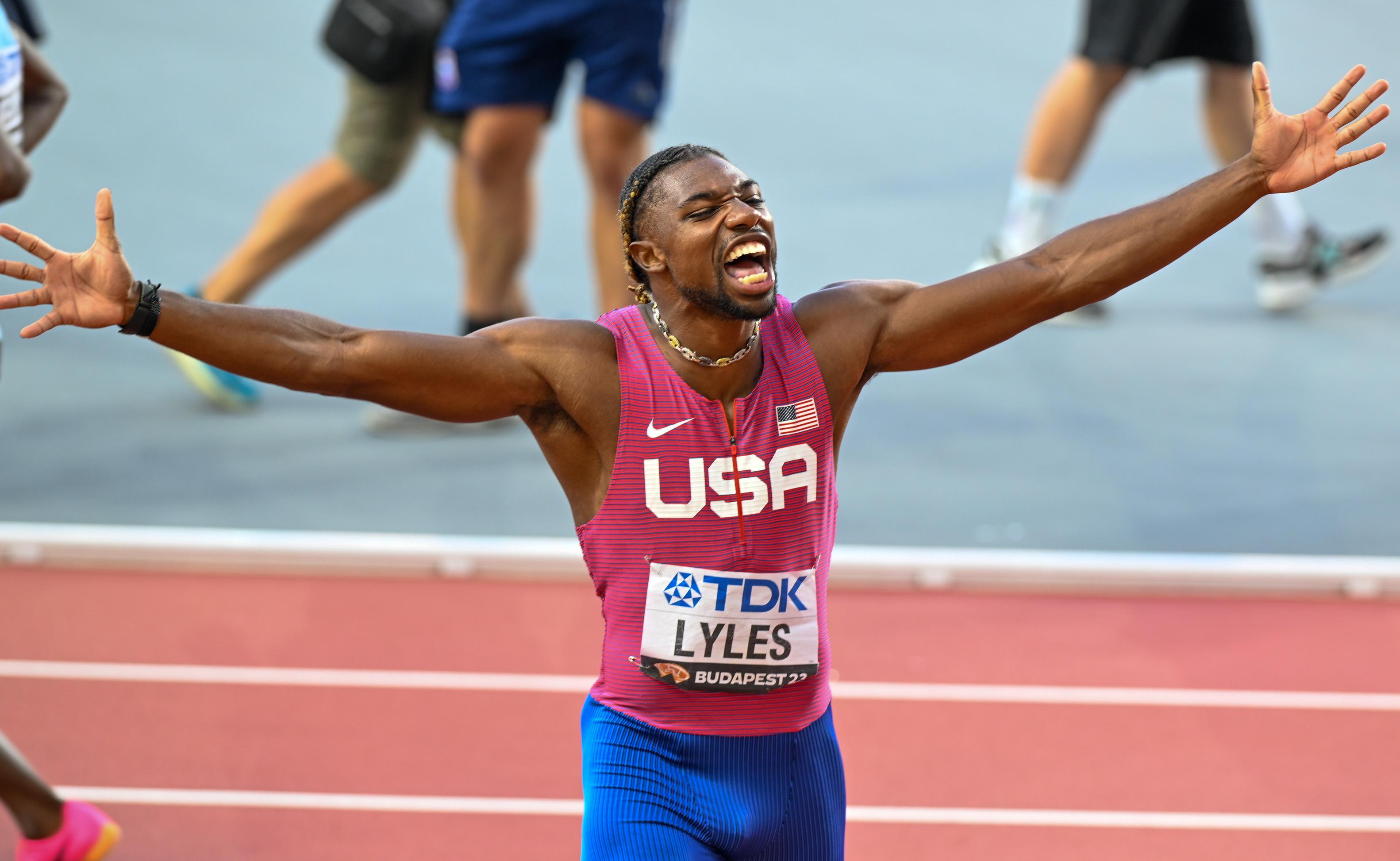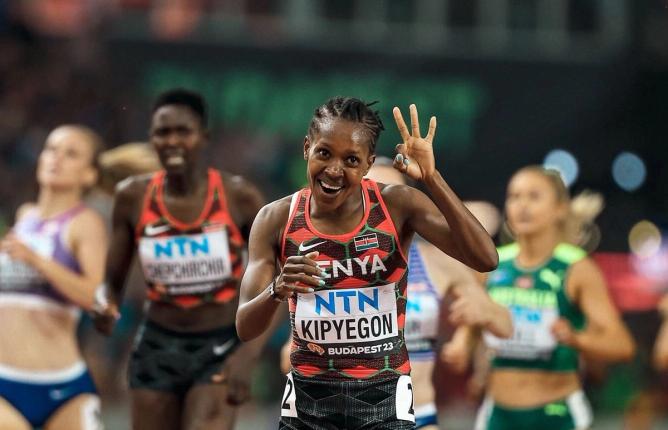By Kyle Merber
August 24, 2023
I know if I were sitting at my desk performing the duties required of my day job, and somebody was outside my window chirping about how I’ll never really figure out Excel macros or Tweeting about how I used too many exclamation points in my last email to my boss, I’d probably be pretty rattled, but I’d also do my best to drown out the doubt! It can’t be productive, right?
For an athlete of Sha’Carri Richardson’s visibility, that’s just not possible. She’s the most recognizable active American track athlete, and perhaps the most scrutinized, ever. Her struggles have been incredibly public, beginning with the saga around her removal from the 2021 Olympic team, continuing through her 2022 campaign – which was not the comeback story she’d hoped for – and even picking up in 2023 when she got off to what many thought was too hot of a start.
All along the way, she’s received unfathomable amounts of vitriol, unsolicited advice, and blind support – in its own way a form of sometimes crushing pressure. She understandably has shied away from interviews with the traditional press, which has been critical, probing, and even hostile toward her.
But following her historic victory – 10.65, a championship record, from lane nine, after qualifying on time – on Monday, Richardson exhibited remarkable poise, saying “last time I was really here in a big stadium I had my orange hair and I wanted to show you guys that I’m still that girl but I’m better. I’m still that girl but I’m stronger. I’m still that girl but I’m wiser.”
It was an answer that pointed to a great deal of introspection in the runup to her first world title, but it’s also an answer that points to the fact that her audience – both fans and haters – loomed large over her preparation for her redemptive 2023 season. If you supported her when she was at her lowest, she’s still that same person. If you kicked her when she was down, she’s a better, more improved athlete than you could have ever imagined – how’s it feel to have been proven wrong?
Ten minutes before Richardson was crowned the fastest woman in the world, another American star stormed the homestretch to secure a gold medal of his own. Except in the case of Grant Holloway, there was hardly any doubt this would be the outcome, and you’d be hard pressed to find anyone knocking his odds, or his humanity.
This was his third outdoor world title. His 2023 had gone swimmingly, beginning with an indoor world title at the 60m hurdles, and continuing through the 11 of 12 races he won outdoors ahead of Budapest. He’s got the best start in the business, and as he progressed through the rounds here in Hungary, I don’t believe he clipped a single hurdle. In a sport that invites upsets, coming into the final, this felt like as sure a bet as you could possibly imagine.
Yet when the predictable outcome unfolded and after Holloway had celebrated, wrapped in an American flag, counting off one, two, three, on his fingers and smiling for the dozens of assembled cameras, he gave what I found to be a fascinating interview. He said something to the effect of being driven by his doubters. What? Who?! Nobody was at his level all year, and everybody seems to love him – I know I do!
I’m sure an athlete of Grant’s caliber does have people questioning whether he’ll win, and I’m not trying to downplay any hardships he faced leading up to this moment. But maybe he has to search for years-old Tweets to find his one hater? Regardless, there does seem to be something about the mentality of the world’s most accomplished athletes – they need a chip on their shoulders to perform their best.
You don’t get to a world championship final without being one of the most self-motivated people alive. You have to truly want to be the best. (And you have to be blessed with all the talent that can fit into a human body.) But perhaps what separates the eventual winner from the others in the field is that .1% boost that comes from an external push. Like a tree photosynthesizing, they transform ambient doubt – no matter the quantity – into positive energy, and use it to run stupid fast.

Kyle Merber
After hanging up his spikes – but never his running shoes – Kyle pivoted to the media side of things, where he shares his enthusiasm, insights, and experiences with subscribers of The Lap Count newsletter, as well as viewers of CITIUS MAG live shows.




